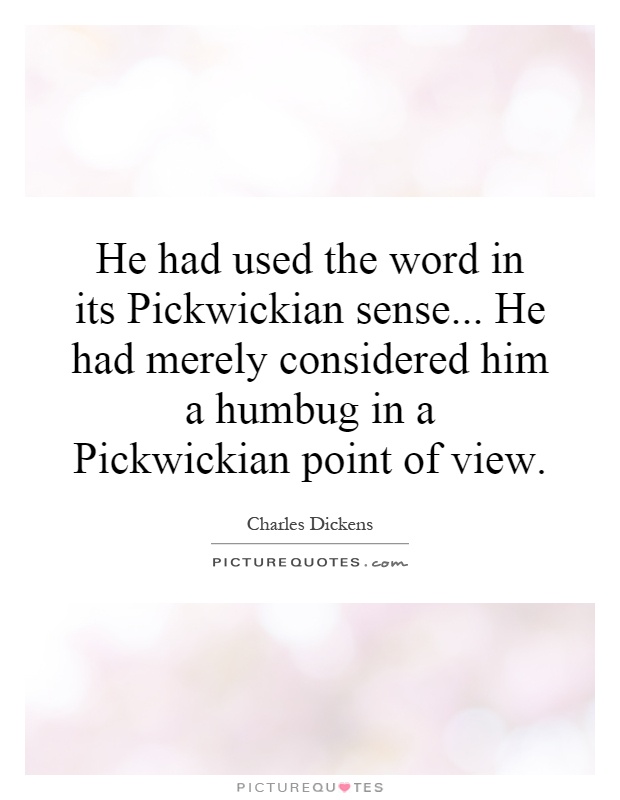He had used the word in its Pickwickian sense... He had merely considered him a humbug in a Pickwickian point of view

He had used the word in its Pickwickian sense... He had merely considered him a humbug in a Pickwickian point of view
In Charles Dickens' novel "The Pickwick Papers," the term "Pickwickian" is used to describe a sense of innocence, humor, and good-naturedness. The character of Mr. Pickwick himself embodies these qualities, as he navigates the various adventures and misadventures that come his way with a sense of optimism and goodwill.When Dickens writes that a character had used the word in its Pickwickian sense, he is suggesting that the character viewed the situation with a sense of humor and lightheartedness, much like Mr. Pickwick himself would have done. In this context, the word "humbug" is used to describe someone who is deceitful or dishonest, but the character in question had merely considered him a humbug in a Pickwickian point of view, meaning that he saw the situation as more comical or harmless than malicious.
This use of the term "Pickwickian" reflects Dickens' overall approach to storytelling, which often combines humor and satire with social commentary and moral lessons. Through the character of Mr. Pickwick, Dickens explores themes of friendship, loyalty, and the importance of maintaining a positive outlook in the face of adversity.












 Friendship Quotes
Friendship Quotes Love Quotes
Love Quotes Life Quotes
Life Quotes Funny Quotes
Funny Quotes Motivational Quotes
Motivational Quotes Inspirational Quotes
Inspirational Quotes